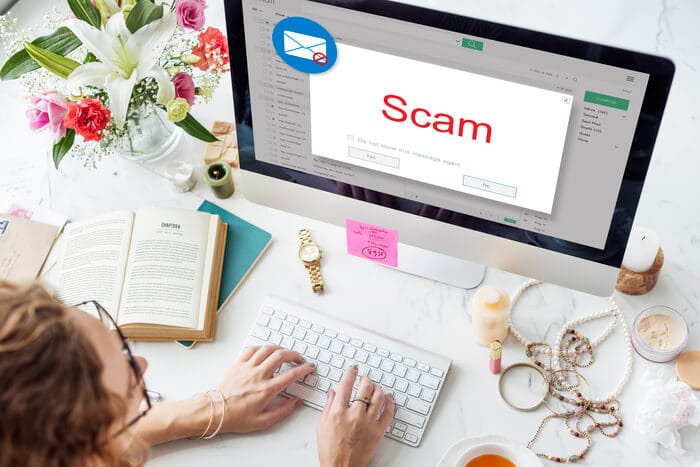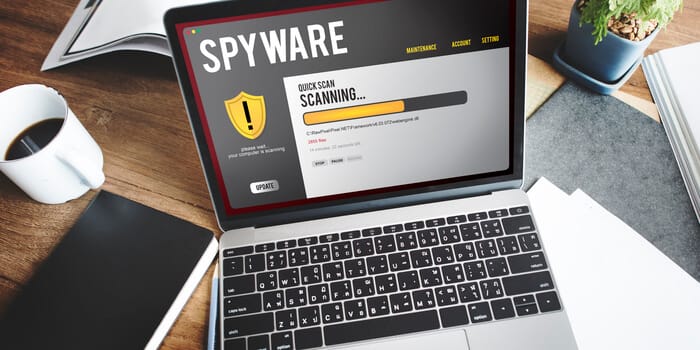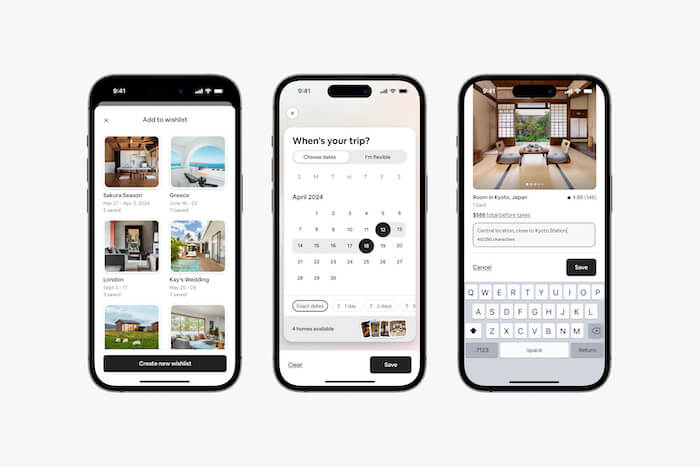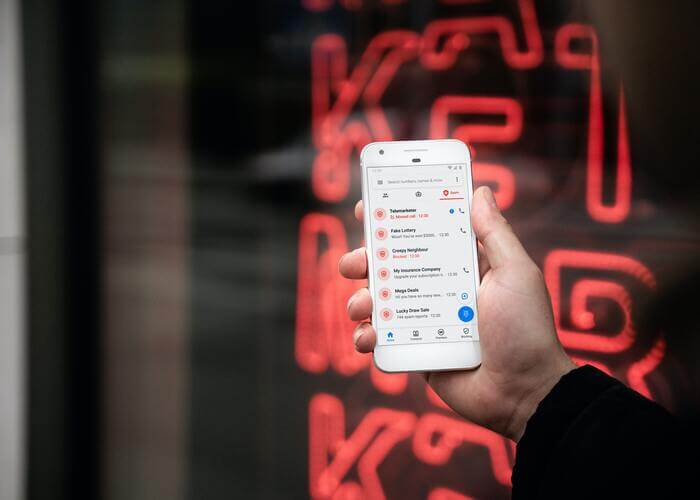Can You Get Scammed on Vrbo? Top Safety Tips for Hosts & Guests

Asking whether or not you can get scammed on Vrbo is a valid question. With the rise of the digital era also came the rise of digital fraud. And the vacation rental industry is not immune to it.
While an OTA like Vrbo is very safe to use, it does not mean it is completely safe from vacation rental scams.
Read on to explore how fraudsters operate on sites like Vrbo so that you can guard yourself against scams.

Can Both Hosts and Guests Get Caught in Vacation Rental Scams on Vrbo?
Yes! Unfortunately, if you are not careful, you can fall victim to a vacation rental scam, even on secure sites like Vrbo.
While well-established OTA platforms like Vrbo employ strict measures to keep hosts and guests safe, fraudsters are cunning and can find ways around it.
The best way to protect yourself is to recognize every warning sign and red flag so you can avoid them.
How Do Scammers Trick You? Warning Signs & Red Flags
If you’re oblivious to the methods used by Vrbo scammers, there is a greater risk that you will fall for them. Arm yourself with these commonly used tactics to stay protected against scams.
Host scams on Vrbo
Here are the main ways fake hosts try to scam travelers on Vrbo:
1. Phishing emails
A phishing email/phishing scam is a fake message that scammers can send to a potential guest. It tries to make them believe they are a true Vrbo property owner or property manager.
A phishing email will usually try to trick the reader into giving up confidential information like secure passwords. It could also try to convince them to wire money to the scammer or trick them into clicking on unsafe website links that could have malicious software like computer viruses.
A few red flags and warning signs to look out for in phishing emails are:
- Poor grasp of language and basic language skills, including bad spelling, grammar, and punctuation
- Details that are inconsistent with the Vrbo listing or vacation home title
- Urgent timelines, threatening language, and ultimatums (for example, they’ll say “If you don’t pay by the end of the day, you’ll lose your place”)
- The host’s or property manager’s name is different from the listing
- The email originated from a sketchy email address
- Booking request form that looks inconsistent with normal
2. Strange payment requests
Another common ploy used by scammers is to try to convince a potential guest to make wire transfers off the Vrbo platform.
According to Michelle Couch-Friedman, executive director at Elliott Advocacy, a non-profit consumer advocacy organization, one of the biggest red flags is when you are asked to leave a listing platform like Vrbo to make a payment.
They do this because Vrbo’s payment platform is more secure and hosts cannot withdraw their money straight away.
By convincing you to pay using a less secure platform, they can receive immediate payment and there’s a higher chance that the transaction cannot be reversed. Simply ignore the requests or quote your payment policy as the reason for your unwillingness to comply with their requests.
3. False or missing information and suspicious photos
Another giveaway for a Vrbo scam is a questionable property description and untrustworthy photos. The general rule with any vacation rental listing is that if it seems too good to be true, it probably is. If a property description seems vague or hard to believe, it could be a sign that a host is trying to scam you into wanting to book a fake property.
Another warning sign would be the photos of the property. They could either be poor quality, grainy photos or look too good to be real. If the photos do not look believable, it’s possible that you’re dealing with a scammer.

4. Brand new vacation rental listing
Travelers should always be cautious of brand-new vacation rental listings because it’s a lot more difficult to tell if it’s a fake listing or not.
For one, it means that there are no reviews to find out what the property and host are like. There is also the risk that the listing is fake and has slipped through Vrbo’s verification processes.
5. No reviews or strange ones
We’ve already touched on why listings with no reviews are risky, but you should also be aware of the reviews that are present on a listing. If the reviews use repetitive language or are inconsistent with the property descriptions, it is possible that the reviews are fake too.
For example, if the reviews speak about a cabin or beach house, but the Vrbo listing describes a city apartment, you may have a fake review on your hands.
Guest scams on Vrbo
Hosts are not the only scammers out there. It’s important for hosts to protect themselves from fraudulent potential guests too. Here’s what to look out for:
1. Requests unreliable payment methods
A fraudulent guest may try to ask if they can pay by certified check, cashier’s check, or via an unsecured wire transfer. These are risky forms of payment as there is a higher chance that the checks are counterfeit, or the transfer could reverse.
This scam could also be used by the guest trying to book a last-minute trip less than 24 hours in advance. Guests may try to stay at your vacation rental before they realize that their payment was a scam.
2. Overpays and requests refunds
Coupled with counterfeit payments, a scammer can also overpay for a booking and ask for a full refund before their money clears. This means that they could scam you into sending them money before realizing that their initial payment was a scam all along. Be careful when agreeing to send refunds or send money to someone. Scam artists are very advanced nowadays and you’ll need some sort of payment protection in order to keep yourself safe!

3. Impersonating an important person
Scammer guests may pretend to be a sea captain, religious figure, part of the armed forces, etc. This is to lull you into a false sense of security. It’s to give you some sort of confidence guarantee that your money is going to someone important and trustworthy.
4. Planning a surprise trip
Another common backstory that should ring warning bells is if they say they are planning a surprise trip for a friend. This excuse is used to explain why different names are used during fraudulent payments.
5. Difficult to contact and verify
Guests who are trying to scam you will either be poor communicators or will request to communicate off the platform. This is a major red flag.

6. Very first booking on the platform
If you see the guest is brand new to Vrbo, it will be risky to accept their booking. Scammers often create new accounts so that you cannot see if other hosts have posted negative reviews about them. It is also possible that Vrbo could have deleted their previous scam accounts.
7. Missing information on their profile
If you see their Vrbo profile only contains the bare minimum in terms of their information, it could mean they are trying to hide something and may not be trustworthy.
8. Poor language usage
Just like fraudulent hosts, scammer guests could also have poor language skills with bad spelling and grammar.
What Should I Do If I Suspect a Scam?

If you suspect that a Vrbo host or traveler may be trying to scam you, Vrbo provides an option to mark an account as spam. If you’ve already received a request from a scammer, you should contact Vrbo immediately.
What Does Vrbo Do When Hosts and Guests Are Scammed?
Vrbo has a “Book with Confidence Guarantee” which protects customers from fraudulent listings. If a customer pays through the site and the booking turns out to be a scam, Vrbo will refund the guest and/or help them book another vacation rental.
When it comes to hosts getting scammed, things can get a little tricky. Because most scams that hosts will fall victim to will happen off the Vrbo site, it will be difficult for them to be of help. The best you can do is only to accept payments through the site to be safe and contact Vrbo immediately when you suspect a scam.

Top 14 Safety Tips To Avoid Scams
Now that we know what to look out for to avoid scams, it’s a good idea to implement safe practices so that it never happens to you. Here are the top safety practices every guest and host should follow.
For Hosts
1. Only accept payments through the Vrbo platform
The easiest way to ensure your payments all come through successfully is to accept payment only through the Vrbo platform.
2. Perform guest screening beforehand
Guest screening will help verify a guest before you accept their booking. Guest screening tools like Safely can screen potential guests to detect if they’re sex offenders, criminals, terrorists, or just plain bad guests.
3. Read the guest reviews from other hosts
Vrbo allows hosts to review their guests. This is a great place to find out what a guest is like from fellow hosts who have transacted with them in the past.
4. More information provided than needed (or emotional stories)
Watch out for the long stories designed to pull at the heartstrings, or for signs of the common stories discussed earlier (impersonations, surprise trips, etc.).
5. Do not refund overpayments
Make it clear that you do not refund overpayments. This way, scammers won’t try to get you to fall victim to this scheme.
6. Consider email security
Online safety is a big concern for modern people. Personal details can be copied with shocking speed and that stolen information could be extremely damaging. You can make use of an email provider that offers email security systems like scam flagging and so on. There are plenty on the market!
7. Integrate your Vrbo account with vacation rental software
Integrating your Vrbo account with vacation rental software like iGMS adds an extra layer of protection and convenience. The software allows you to process payments by integrating with Stripe, while simultaneously helping you manage all your listings across top vacation rental platforms like Vrbo, Airbnb, and Booking.com.

For Guests
1. Pay for bookings through the Vrbo platform only
As with hosts, the best way for guests to keep payments secure is to pay through the Vrbo platform. If a listing does turn out to be a scam, you have the Book with Confidence Guarantee to fall back on.
2. Use your credit card for payments
A credit card is the safest way to pay for any transactions online, including paying for a vacation rental on Vrbo.
If you happen to fall victim to a scam, your credit card company will be able to reverse the transaction. This will be difficult to achieve if you made a payment using a debit card instead.

3. Locate the property on Google Maps
Even if you don’t have access to the exact address, you can still use Google Street View on Google Maps to do some background checks to make sure the vacation rentals you book are legitimate. Many guests will do the same before they book your listing.
4. Reverse image search the vacation rentals’ listing pictures using Google Images
If you notice that the images on new listings look doubtful, you can always use Google image search to double-check that the images haven’t been taken from somewhere else on the internet. This is something scammers tend to do when they need photos for their fake new listing.
5. Pay attention to the property and owner reviews

Read reviews on the listing to ensure that the property listing is real and that other guests have had good experiences. If you see the reviews repeating the same thing or are saying things that are inconsistent with the property listed, it’s best to skip it.
6. Contact your host via the phone before your stay
Vrbo will provide a phone number that you can use to make contact with the host. It’s always good to make a point of calling them before your stay so that you can confirm the details of your initial inquiry, including the specific dates you’ve booked.
7. Look out for unusual terms and upfront fees
If the property owner is asking for unusual terms like late-night check-ins or extra fees to get more money from you, rather stay away from this listing.
8. Consider travel insurance
Travel insurance gives you an extra layer of protection in case anything does not go according to plan during your vacation.

Conclusion
While there is always a risk of a scam when making online transactions, you should not expect this to be the rule. If you remain weary and keep the abovementioned helpful safety tips in mind, you’ll be able to have a pleasant scam-free experience with vacation rental sites like Vrbo.
About the Author
Callan Riddles is the Content and Social Media Specialist at iGMS. Callan has a passion for finding new ways to help vacation rental businesses thrive. In her free time, she loves to travel, read, and experience all the new things that life has to offer.







